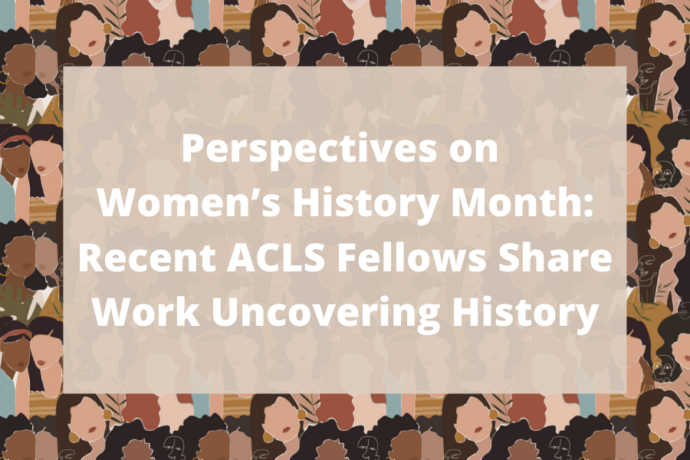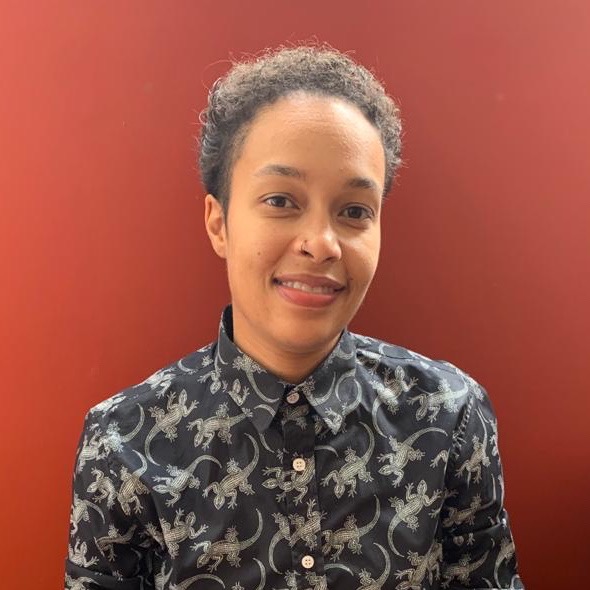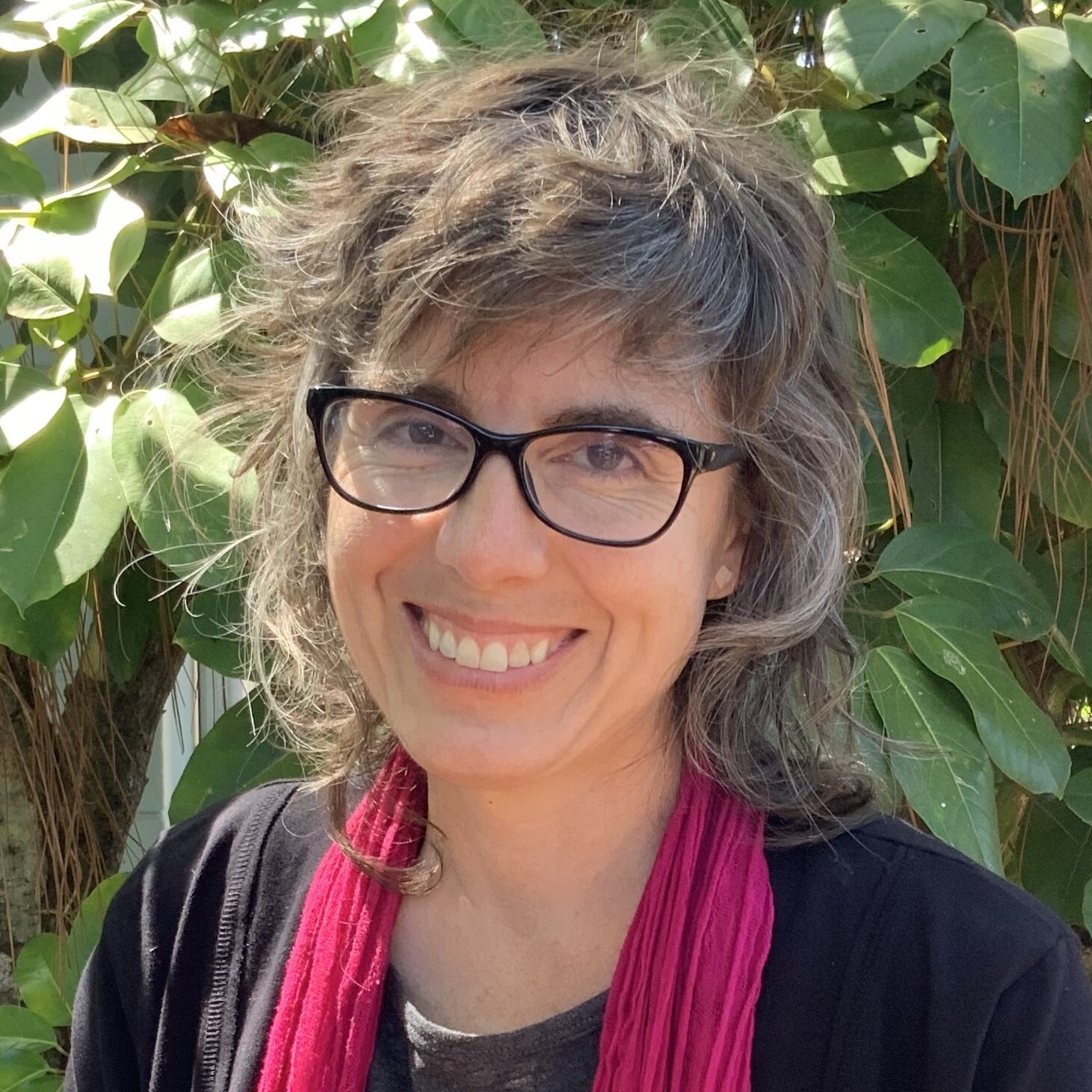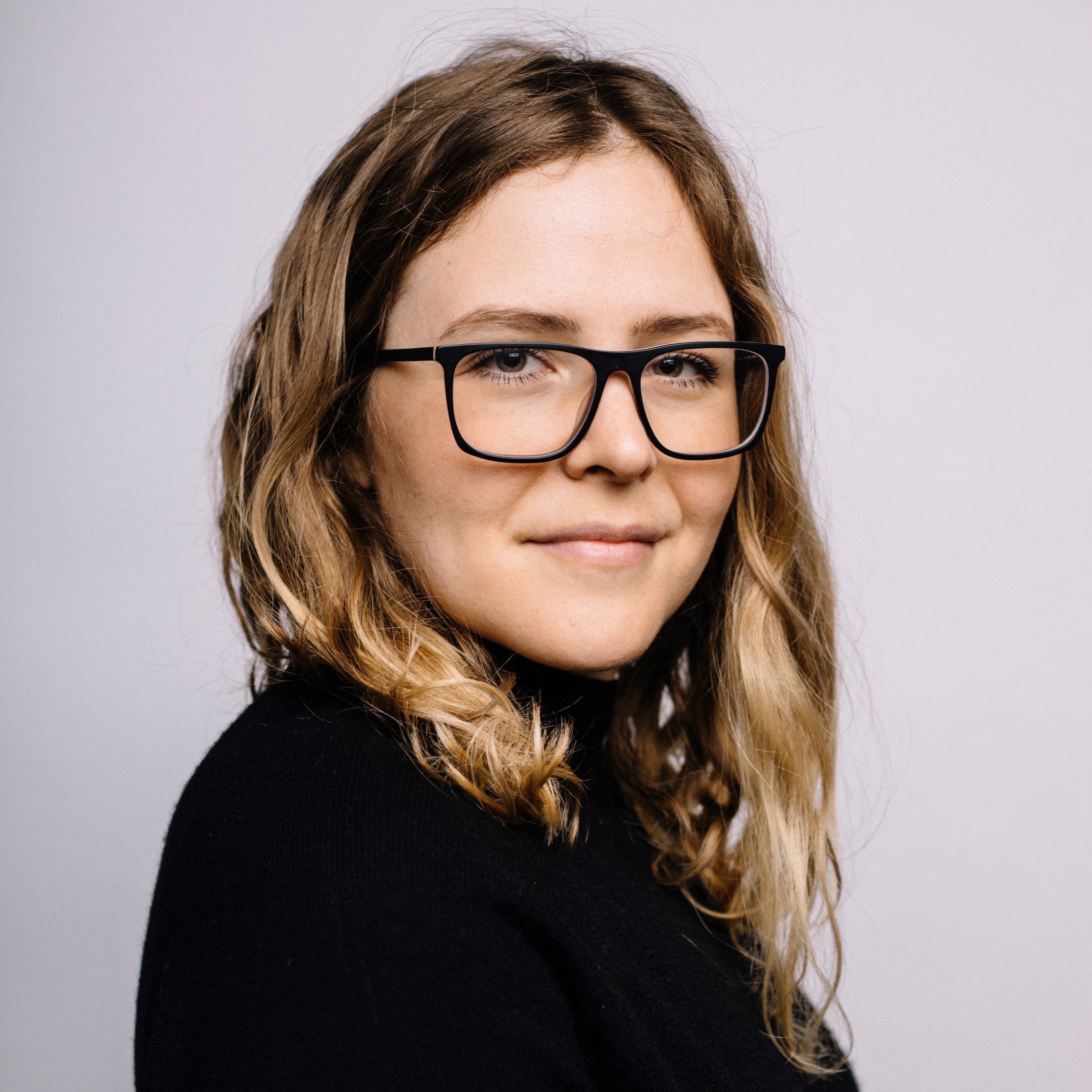Women’s History Month Scholarly Resources Page
For Women’s History Month, ACLS is sharing scholarly resources that celebrate and highlight lesser-known, forgotten, and diverse histories and historical roles of women.

Following our Women’s History Month Scholarly Resource List and the first installment of Perspectives on Women’s History Month, ACLS is sharing excerpts from conversations with 2020 fellows whose work documents, centers, and uplifts women. From the influence of Black women in shaping modern Brazil, to the overlooked work of an American biblical scholar, their research brings to light previously unrecognized histories and impacts of women across the globe.
 Doctoral Candidate, History, University of California, Irvine
Doctoral Candidate, History, University of California, Irvine
2020 Mellon/ACLS Dissertation Completion Fellow: Flowers Grew Out of the Asphalt: Black Women’s Territories in São Paulo, 1871-1930
How does your research center women?
“The lives and contributions of Black women after abolition in Brazil in 1888 often go unrecognized as part of a larger omission of slavery and Black histories in public discourse and the archive. In my dissertation, I center Black women and their geographies as integral and indispensable to the formation of the city and society in the afterlife of slavery. I map Black women’s geographies using medico-legal incident reports, alongside newspaper columns and interviews, to demonstrate how their presence shaped modern São Paulo.”
Why did you decide to do this work?
“During my graduate studies, I was introduced to the scholarship in Black Feminist Studies that gave me the interdisciplinary tools to examine the afterlife of slavery in Brazil. It changed how I read and engaged the historiography of the African Diaspora in Brazil and Latin America. Moreover, I am particularly indebted to Black women’s recent work that focuses on Black women’s lives throughout Latin America. Their passion and dedication for their work as researchers, teachers, and mentors motivated me to find a research project that intimately connected me to my interests and life experience.”
I am particularly indebted to Black women’s recent work that focuses on Black women’s lives throughout Latin America. Their passion and dedication for their work as researchers, teachers, and mentors motivated me to find a research project that intimately connected me to my interests and life experience. Kat Cosby F’20
How has your ACLS fellowship enabled you to advance this work?
“The Mellon/ACLS Dissertation Completion Fellowship has granted me the time to enhance my writing and thinking practices. The medico-legal incident reports often contain details on the grim realities for Black women in the post-abolition era. I had to learn how to slow down and sit with a set of incident reports to consider Black women’s lives more carefully, as I wrote. The ACLS fellowship provided the opportunity to develop a practice that I intend to hone throughout my career.”
 Professor, Religious Studies, Eckerd College
Professor, Religious Studies, Eckerd College
2020 ACLS Fellow: Emilie Grace Briggs, Women Leaders in Early Christianity, A Study in Historical Dynamics (1910): A Critical Edition and Commentary
How does your research center women?
“My project focuses on the overlooked and forgotten participation of American women in biblical scholarship and studies of ancient religion during the late 19th and early 20th centuries. My main exemplar in this project has been Emilie Grace Briggs, the daughter of biblical scholar and accused heretic Charles Augustus Briggs. I have been working with Briggs’s archives to transcribe and publish her manuscript on women’s leadership in early Christianity as a critical edition with introduction and commentary… Although my project is mostly concerned with transcribing, editing, and publishing a monograph composed by Ms. Briggs nearly a century ago, a no less important piece highlights the role of American women in biblical scholarship and reconsiders the deep historical connection between women biblical scholars and the teaching of biblical literature and religion in American liberal arts college settings.”
Why did you decide to do this work?
“This is a project I have been wanting to complete since I first encountered the Charles and Emilie Briggs archives at the Burke Library of Union Theological Seminary/Columbia University as a graduate student nearly 25 years ago. It was then that I learned that although Emilie completed a number of her father’s books after his death, she was never granted the PhD on account of not meeting a special requirement, unique to her, that she publish her dissertation manuscript as a book…By publishing this book, I aim to posthumously recognize Emilie Briggs’ monumental achievement as a biblical scholar in her own right and not just as her father’s aide.”
Although Emilie completed a number of her father’s books after his death, she was never granted the PhD on account of not meeting a special requirement, unique to her, that she publish her dissertation manuscript as a book…By publishing this book, I aim to posthumously recognize Emilie Briggs’ monumental achievement as a biblical scholar in her own right. Davina C. Lopez F’20
How has your fellowship enabled you to advance this work?
“I teach at a small liberal arts college, an institutional context where faculty still do a lot of work just as they did a century ago. The ACLS fellowship affords, first and foremost, the precious resource of time. I am most excited about and grateful for the opportunity for sustained reflection on the rich, under-explored intellectual history of American women in my field.”
 Doctoral Candidate, History of Art, Bryn Mawr College
Doctoral Candidate, History of Art, Bryn Mawr College
2020 Luce/ACLS Dissertation Fellow in American Art: (Un)Bound: Towards a Contemporary Migratory Aesthetics of Performance in the United States by Womxn-Identifying Practitioners, 1970-2016
How does your research center women?
“My dissertation examines conditions of migration within the works of womxn-identifying practitioners of performance situated in the United States, claiming that their conditions of production are ritualized in my theorization of a “performative migratory aesthetics,” and subsequently constitute multiplicitous, liminal, and resilient identities. In a range of case studies spanning the 1970s through 2018, I trace a lineage of such aesthetics from the post-war practices of Theresa Cha, Ana Mendieta, and Adrian Piper through the contemporary practices of Tania Bruguera, Coco Fusco, and Tania El Khoury.”
Why did you decide to do this work?
“I was inspired to pursue this research while undertaking a Masters at The Courtauld Institute of Art in London during the fever-pitch of the so-called “migration crisis” from 2014–2015. The term and its emergent periodization is problematic for a number of reasons, ranging from the presumed blame that it places on migrants, its Euro-centric focus rather than a rhizomatic understanding of time and space, and its historical lack of research on the conditions and experiences of womxn in particular—a population whose presence has overwhelmingly increased within contemporary waves of migration worldwide.”
The Luce/ACLS Dissertation Fellowship in American Art has provided me with undivided time and flexibility during the COVID-19 pandemic to continue research and writing. Laurel McLaughlin F’20
How has your fellowship enabled you to advance this work?
“The Luce/ACLS Dissertation Fellowship in American Art has provided me with undivided time and flexibility during the COVID-19 pandemic to continue research and writing, particularly on the primary theorization chapter of my dissertation, in addition to offering financial support to sustain such focus.”
For Women’s History Month, ACLS is sharing scholarly resources that celebrate and highlight lesser-known, forgotten, and diverse histories and historical roles of women.